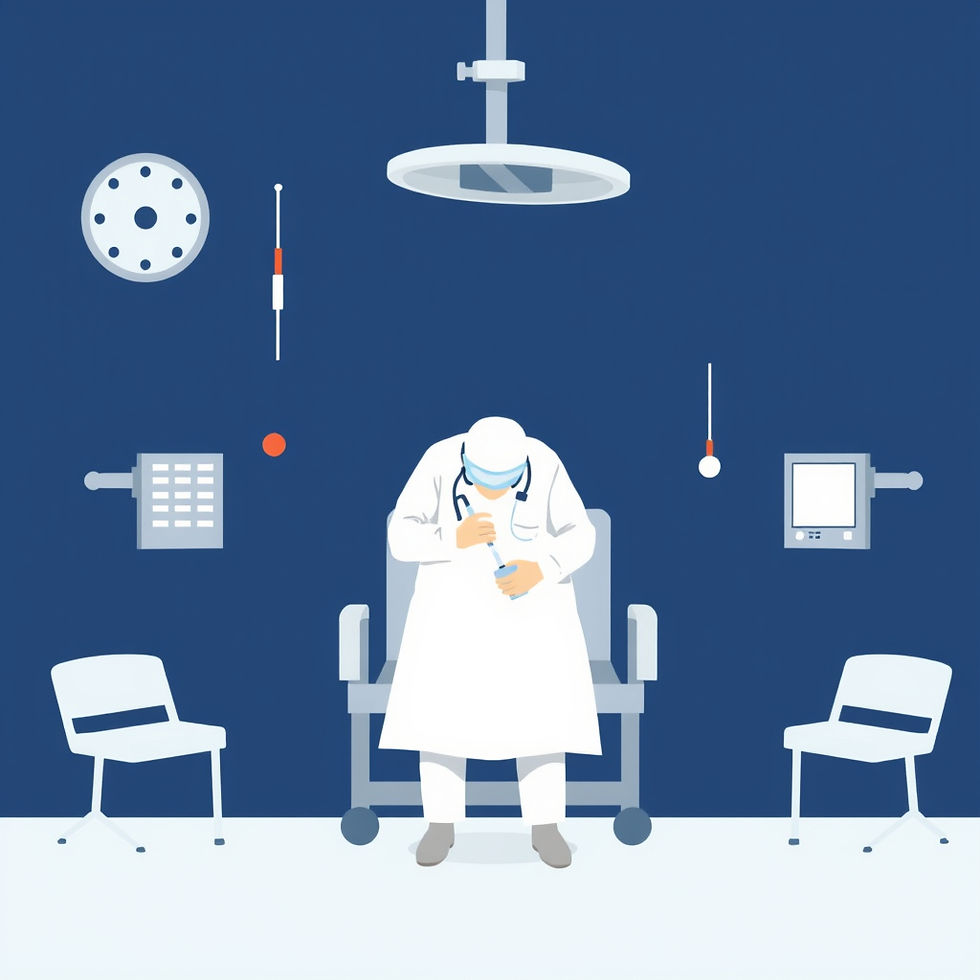How to Identify Psychiatric Negligence: 10 Warning Signs
- clairelouise7485
- Oct 23, 2025
- 4 min read

Introduction
Mental-health treatment should offer safety, respect, and recovery — not harm.Yet across the UK, patients continue to experience psychiatric negligence that damages trust, health, and lives.
Because mental-health settings can be complex and intimidating, it’s not always easy to recognise when professional standards have been breached.This article lists 10 key warning signs of psychiatric negligence — drawn from patient advocacy experience, UK legal standards, and NHS guidance.
If you’re new to our site, you can learn more about our mission on the Kehoe Medical Abuse homepage or visit our About Us page to understand why we fight for safer mental-health care in the UK.
What Is Psychiatric Negligence?
Psychiatric negligence occurs when a mental-health professional fails to meet their duty of care and that failure causes harm.This can include:
Misdiagnosis or medication errors
Ignoring patient safety warnings
Coercive or abusive behaviour
Breaching confidentiality
Falsifying or losing medical records
Understanding the signs early helps you act before further harm occurs.
🔟 Ten Warning Signs of Psychiatric Negligence in the UK
1️⃣ You Are Dismissed or Not Listened To
If doctors or staff constantly dismiss your concerns, interrupt you, or refuse to record your symptoms accurately, that may indicate a breach of professional duty.Every patient deserves to be heard — especially when describing side-effects, distress, or suicidal thoughts.
2️⃣ Sudden Withdrawal of Medication Without a Plan
Abruptly stopping antidepressants, antipsychotics, or mood stabilisers without a gradual taper or supervision can cause severe withdrawal symptoms or relapse.NICE guidelines require a written, safe plan for discontinuation.If this is ignored, it can amount to clinically unsafe practice and psychiatric negligence.
3️⃣ Medication Errors or Unsafe Prescriptions
Negligence can occur when:
Prescriptions are duplicated or mismatched
Dangerous drug combinations are used
Dosages are excessive or not reviewed
Side-effects are ignored
If medication caused harm due to poor monitoring or rushed decisions, you can request an independent medical review.
4️⃣ Misdiagnosis or Wrong Label
Receiving an inaccurate diagnosis — such as being labelled with a personality disorder instead of trauma, PTSD, or depression — can lead to years of inappropriate or harmful treatment. A misdiagnosis that could have been avoided may meet the legal threshold for negligence.
5️⃣ Ignoring Reports of Abuse or Self-Harm
If you report abuse, self-harm, or suicidal thoughts and staff fail to act, that’s a serious safeguarding failure.NHS staff have a legal duty to escalate all patient-safety risks immediately.Failure to protect you can amount to both negligence and breach of human rights.
6️⃣ Coercive or Humiliating Behaviour
Threats, shaming language, or unnecessary restraint are never acceptable. These behaviours violate the Human Rights Act 1998, the Mental Health Act Code of Practice, and professional ethics.Patients must be treated with dignity, even during compulsory care.
7️⃣ Falsified or Missing Medical Records
If your notes don’t match what you experienced — or if entries have been deleted, changed, or fabricated — that’s a major red flag.Altering medical records can be both a disciplinary and criminal offence under UK law (Fraud Act 2006, Forgery Act 1981).Request full copies under the Data Protection Act 2018 and compare them to discharge summaries or past letters.
8️⃣ Breach of Confidentiality
If personal information about your mental health is shared without consent, it’s a serious violation of trust. You can report breaches to the Information Commissioner’s Office (ICO) or the Care Quality Commission (CQC).
9️⃣ No Follow-Up or Aftercare
Psychiatrists and NHS Trusts must ensure continuity of care. If you are discharged suddenly with no follow-up, prescription review, or community support, that can endanger your safety and qualify as negligent discharge.
🔟 Retaliation for Complaining
If staff treat you worse after you raise concerns — such as refusing treatment, spreading false information, or isolating you — that is victimisation. Under NHS and UK employment law, retaliation against whistleblowers or complainants is forbidden. Document everything and escalate to the CQC, GMC, or Parliamentary and Health Service Ombudsman (PHSO).
How to Take Action If You See These Warning Signs
If you recognise several of these issues, you may have experienced psychiatric negligence.
Step 1: Gather Evidence
Keep records of your appointments, prescriptions, and communications.Request your medical notes under the Data Protection Act 2018.
Step 2: File a Complaint
Start with your NHS Trust’s PALS office or Complaints Department.If unsatisfied, escalate to the CQC or GMC.
Step 3: Seek Legal and Advocacy Support
Contact:
A medical negligence solicitor (for compensation or legal advice)
Mind or Rethink Mental Illness (for advocacy and support)
The ICO (if data falsification occurred)
You can also share your experience on our Kehoe Medical Abuse homepage to raise awareness and help others identify similar patterns of mistreatment.
Protecting Yourself and Others
Recognising and reporting negligence helps improve the system for everyone.Each complaint adds to public awareness and encourages reform within NHS and private mental-health services.
If you feel unsafe, contact:
Samaritans – 116 123 (24/7)
Mind Infoline – 0300 123 3393
Or, in an emergency, call 999
Conclusion
Spotting the signs of psychiatric negligence isn’t always easy, but it can be life-saving.If something feels wrong, document it, seek advice, and speak up.
Every patient in the UK has the right to safe, respectful, and evidence-based mental-health care.To learn more about our mission to expose medical abuse and support victims, visit our About Us page.


Comments